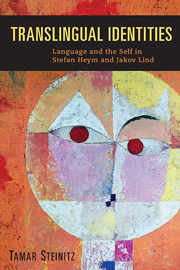Book contents
2 - Fighting Words: Propaganda and Ideology in Stefan Heym's The Crusaders
Published online by Cambridge University Press: 05 October 2013
Summary
The Pen and the Sword
“The art of prose,” wrote Jean-Paul Sartre shortly after the Second World War, “is bound up with the only régime in which prose has meaning, democracy. When one is threatened, the other is too. And it is not enough to defend them with the pen. A day comes when the pen is forced to stop, and the writer must take up arms.” For Stefan Heym, pen and sword had always been one and the same: not least when he enlisted in the American army in 1943 as a soldier in the Psychological Warfare Unit. The German-born writer would engage in a war of words, writing propaganda in an attempt to weaken the enemy: an enemy he was intimately familiar with and had been fighting with his pen since childhood.
Stefan Heym was born in Chemnitz in 1913 as Helmut Flieg, the son of middle-class Jewish parents. From a very young age, he wrote plays and poems. In 1931, the local social-democratic newspaper published his satirical poem “Exportgeschäft,” criticizing the German army's decision to send instructors to Chiang Kai Shek's army in China. At the time, National Socialist sympathies were rising in Chemniz, and Flieg was expelled from his school. He finished high school in Berlin in 1932, where he continued to write political verse and began writing articles for leftwing papers and magazines under a variety of pseudonyms.
- Type
- Chapter
- Information
- Translingual IdentitiesLanguage and the Self in Stefan Heym and Jakov Lind, pp. 63 - 95Publisher: Boydell & BrewerPrint publication year: 2013



